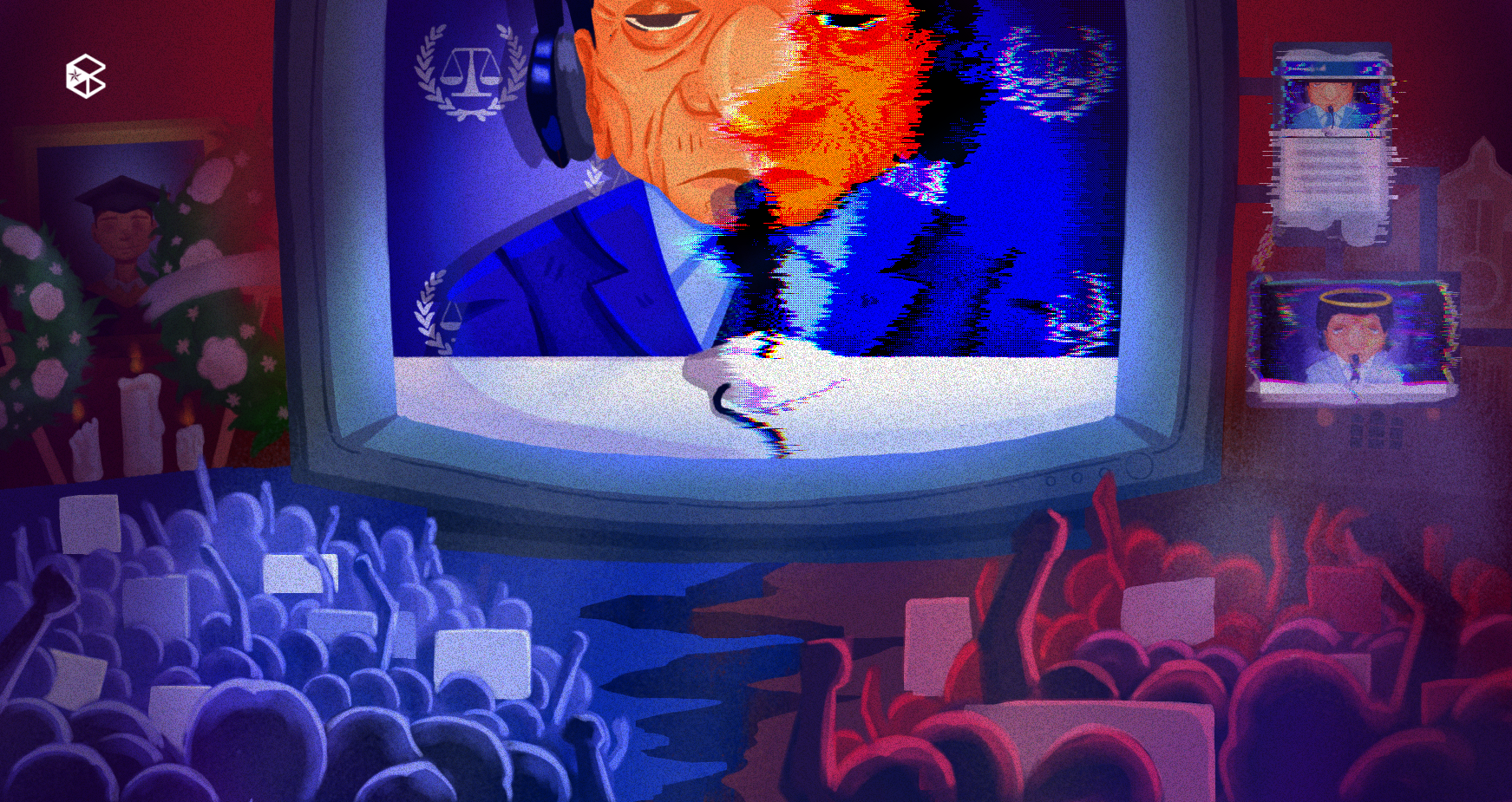The historic arrest creates a test for the nation to prove its dedication to justice that extends to political personalities. It evaluates us to consider vital issues regarding democratic responsibility as well as political development and fundamental democratic standards in the coming months of 2025 as we await his confirmation of trial in an international court.
On March 11, former President Rodrigo Roa Duterte (FPRRD) was arrested by the Philippine National Police, with the help of INTERPOL, which transported him to The Hague, Netherlands, the location of the International Criminal Court (ICC). Throughout his time in power he had once declared "International Criminal Court? Bullsh*t." He currently stands accused of crimes against humanity resulting from his drug war initiative, which caused thousands of deaths. The ICC indictment of Duterte both establishes legal boundaries for Asian leaders and demands Filipino citizens to examine their political consciousness regarding their chosen leaders.
Relief vs. defiance
The arrest has exposed the fractured soul of our country. Llore Pasco, a mother whose two sons were killed in the drug war, expressed “nervous excitement for potential accountability,” according to an Al Jazeera report. Human rights advocacy group Rise Up described the arrest as “justice delayed but not denied.” Their years of documenting atrocities have finally yielded results.
Meanwhile, Duterte loyalists portray his arrest as betrayal. The influential Iglesia ni Cristo (INC) deemed the arrest as "short of due process," echoing claims that the ICC violated national sovereignty. This clear contrast—between victims' cautious hope and supporters' perception of martyrdom—illustrates the deep division in our society.
Agnes Callamard, Secretary General of Amnesty International, called the arrest “a long-awaited and monumental step for justice for the thousands of victims and survivors of his administration’s “war on drugs,” which turned much of the Philippines into a nation of mourning”
Fake news in digital battlegrounds
Online spaces have become arenas for historical revisionism and resistance. Pro-Duterte networks have flooded platforms with claims that the ICC arrest was a "kidnapping," amplified by paid Facebook ads and viral posts featuring fictional lawyers defending him. These efforts mirror Duterte's 2016 campaign strategy, creating parallel narratives that challenge factual reporting.
Despite these disinformation campaigns, public sentiment appears to be shifting. A recent WR Numero survey revealed that 62% of Filipino respondents believe it is important for Duterte to face his case before the ICC, while only 20% disagreed. This represents a change from the 82-88% approval ratings his drug war once commanded.
As victims' families seek justice, they face harassment. Sheerah Escudero, whose brother was killed in 2017, shared her experience of harassment.
“I got text messages branding me as a ‘liar’ and ‘drug user’ for pursuing justice.” This cyberbullying reveals that Duterte's influence persists not only in courtrooms but in the digital space of echo chambers as well.
A test for democracy
The arrest has become a critical test for democracy. It has intensified the Marcos-Duterte feud, with Sara Duterte facing impeachment proceedings for alleged corruption. President Marcos Jr.'s cooperation with the ICC has positioned him as a champion of the rule of law, though critics note his administration has not been immune to human rights criticisms.
The upcoming May 2025 midterm elections hang in the balance. The Manila Times observes that "while his staunchest supporters and the Marcos loyalists will remain steadfast in their positions, the real battleground will be among independent voters.”
These independent voters, who don't subscribe to political fanaticism, will determine whether accountability topples personality politics.
Paradoxically, Duterte's allies continue to perform well in Senate polls even as support for his ICC trial remains strong. This contradiction highlights the complex relationship Filipinos have with accountability and personality politics.
FPPRD’s arrest offers a rare chance for national introspection. The true reckoning lies not in The Hague but in whether Filipinos can transcend polarization to demand institutions stronger than personalities.
A call to young Filipinos
We who have come of age during Duterte’s politics and historical revisionism, his arrest represents a moment for reflection. It challenges us to reconsider a political culture that has often prioritized strength over moral leadership, immediate results over sustainable governance, and personality over principle.
We hold the key to transforming our political landscape. Digital literacy to combat disinformation and the moral clarity to demand better governance is the power of our generation.
As we prepare for upcoming elections, there’s an opportunity to reject the cycle of impunity that has characterized our nation's politics for generations. Will we continue to support those who orchestrate violence against the vulnerable, or will we demand leadership that respects the sanctity of all lives—even those struggling with addiction who deserve rehabilitation rather than execution?
As we observe this historic trial, we must ask ourselves difficult questions about what kind of leaders we elect and what values we truly uphold. Will the nation that once overwhelmingly supported violent drug policies now embrace accountability and human rights?
The world watches whether Filipinos choose justice or just another tyrannical leader with an inhumane agenda. For a nation that has repeatedly rallied for democracy yet fallen prey to authoritarianism, this moment offers a chance to redefine Filipino political consciousness—not as loyal subjects to powerful families, but as citizens who demand leadership worthy of their constitutional democracy.
As human rights advocate Atty. Chel Diokno reminds us, “Let’s make sure Duterte doesn’t just run out of hiding places—let’s run him straight into the arms of justice. The road to accountability is long, but today, it just got a little shorter.”
Justice isn't just about punishing the guilty—it's about creating a society where such crimes become unthinkable. That transformation begins not with courts, but with the choices we make at the ballot box and beyond.
To those still defending Duterte’s bloodstained legacy: your support perpetuates a cycle of violence that betrays democratic ideals—choose accountability towards his actions, or be complicit in a system that sacrifices human dignity for the illusion of order.
Gising, Pilipinas.


